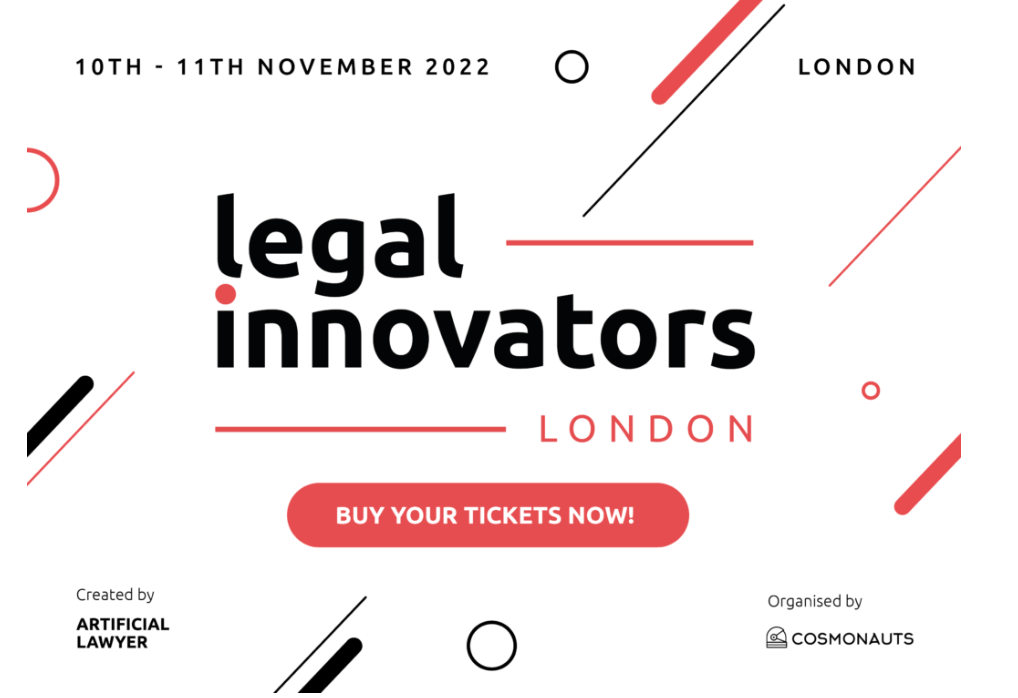
This week’s Legal Innovator Profile is of Stuart Whittle, Chief Technology and Innovation Officer at UK-based law firm Weightmans.
– When did you first hear the term ‘legal tech’ and what did you think at the time?
I have been involved in technology at Weightmans in some shape or form since my last seat as a trainee in 1995, during which I worked for the partner responsible for IT before taking a full time IT-focussed role in 2003.
I genuinely can’t recall where I first heard the term, but I do recall early on in my IT career making a category distinction between ubiquitous technology that lots of organisations used – from Windows, to SQL, to Microsoft Office, and the niche applications that had to be tailored for law firms.
More specifically, when I think about legal tech, back in the day in the UK, there was quite a busy ecosystem of small technology firms that developed and sold products solely to the legal market. To me, that was legal tech – albeit I doubt we were cool enough to abbreviate the term back then.
– What is your role now?
My current role is Chief Technology and Innovation Officer and member of Weightmans’ Board, which I have been part of in its various guises since 2010.
It’s a new role for me and the firm. I am responsible for our IT, Data, Business Change and KM, and our newly created Product and Innovation team. The strategy behind the role is to try and systematise the success we have had in developing products for our clients, be that standalone technology solutions or fixed fee solutions combining technology and services.
– Why did you move into this field, (if this is not the only field you’ve worked in)?
That’s a very long story, but in part it was a real interest in how IT can help lawyers. When I practised law I was an enthusiastic adopter of pretty much anything I could get my hands on. Cue a half-formed thought in 2000 that by investing in an MSc in IT, there might be a career change ahead, and then an opportunity arising in Weightmans a few years later, which I seized.
– What is the most rewarding aspect of your job?
My favourite thing to do, and I don’t get to do as much of it as I would like, is getting a bunch of people of different disciplines in a room – innovators, product managers, lawyers, legal technologists and developers – and with not much more than some pens, flip charts, magic paper and Post-its it’s incredibly fulfilling to turn the germ of an idea into something we can deliver and market.
– If you looked into a crystal ball, how much do you think the everyday practice of law will change in the next five to ten years?
A good lawyer answer to this is that it depends. It depends on the vantage point from which you are looking. So here’s one perspective. At a very reductive level the practice of law has not really changed that much since I practised. It doesn’t really matter what your specialism is, most lawyers do the same 10 or 11 things, which are fundamentally the same 10 or 11 things they have always been doing.
They write correspondence, draft and redraft documents (leases, contracts etc), review documents, go to meetings (real or virtual), make telephone calls (albeit far less than they used to – there is a generation who would find telephoning their parents a bizarre thing to do, so they aren’t going to be phoning a stranger!), they time record, bill (and chase for payment), some go to court or tribunals, some capture data and, last but not least, they undertake legal research (but only if they are really desperate and there isn’t a nearby trainee handy). So from that perspective, I don’t see any of that changing that much over the next 5 to 10 years.
– If you had one gripe about legal tech companies what would it be?
There are only two fundamental things that I ever want from suppliers. Firstly, I want them to make my problem go away; I am only engaging with them because it is something we can’t do ourselves – that’s brass tacks.
And secondly, it would be nice if they could make me look good in the process! As a minimum I would settle for the brass tacks as that doesn’t always happen and that’s the biggest gripe is when they don’t do the basics well.
– If you had one thing you’d really like to applaud legal tech companies for, what would it be?
The tenacity to operate in what can be a challenging and difficult, risk-averse vertical with glacial buying cycles.
– And finally, what advice would you give to anyone wanting to get into this field?
Have an inquiring, open mind and learn as much as you can about a disparate range of subjects – you never know when some of it will be useful; over the years I have become a jack of all trades and a master of one. This is often used in a negative way but if you complete the quote, it reads ‘a jack of all trades is a master of none, but oftentimes better than a master of one’.
In the context of my role, knowing a little about a lot of things I have found has been inordinately helpful when trying to think around a problem – and ultimately, find a solution.
Thanks, Stuart!
—
Legal Innovators UK Conference – London, November 10 + 11
If you found the topics covered in this article of interest then come along to the landmark two-day legal innovation conference in London. Day One: Law Firms and ALSPs, Day Two: Inhouse and Legal Ops. We have a fantastic line-up of speakers from across the legal and legal tech ecosystems for this event focused on learning, sharing and networking. See you there!
Tickets and more information can be found here.
